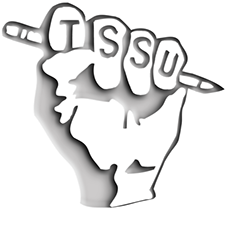Open Letter of Solidarity with Victims of Sexual Assault and Harassment at UBC


We, members of the Teaching Support Staff Union, are writing in support of calls by women at the University of British Columbia for better institutional response to reports of sexual assault and harassment. We stand in solidarity with women who have come forward with their experiences, and with women who have felt unable, or chose not, to report their experiences of assault and harassment. We especially honour the emotional and personal efforts of the six women in the UBC History graduate program who persevered in reporting their experiences of sexual assault, despite the ineffective – and at times actively harmful – administrative response.
We do not believe that it is reasonable to expect victims of sexual assault to wait almost two years for any significant response to their reports. To be expected to work and study alongside your assailant for two years is unthinkable. And yet in the recently publicized case in the Department of History, this was clearly the expectation UBC held of survivors.
The discrepancy between the students' accounts of their efforts to seek justice and some of the accounts given by departmental and university administrators is particularly distressing. While we cannot know precisely what occurred during discussions between women graduate students and the administration, it is more than apparent that the women graduate students involved were not at all adequately supported by their mentors in their department or by university administrators.
This is a failing of UBC’s, but we believe that similar events could (and do) also take place at our own institution, Simon Fraser University. Cases of sexual misconduct and harassment often go unreported because victims fear the repercussions of disclosing the events. These repercussions can include detrimental effects on degree completion, diminished access to employment opportunities as teaching assistants and sessional instructors, and potential damage to the victim’s reputation, which may limit opportunities for tenure-track or alt-academic positions after graduation. This is what makes this case so egregious: victims did come forward, despite the potentially detrimental effects on their lives and careers, and yet the University's response was inadequate, and in some cases, re-traumatizing.
We are thus calling on the Presidents, human rights officers, and graduate student societies of both universities to ensure that the policies and the practices of responding to reports of sexual assault by students and faculty are revised, in consultation with victims of sexual assault and harassment. Work needs to be done to ensure that the process of reporting sexual assault and / or harassment does not do further damage through re-victimization.
With regards to the case at hand, we understand that Dmitry Mordinov, the admitted assailant, has been expelled, but that he is appealing this decision. We urge UBC to uphold his expulsion for the safety of his victims, and the entire campus community. Moreover, following the call made by women students at UBC, we call for the establishment of Sexual Assault Response Teams (SARTs) at both UBC and SFU. While it is imperative to improve university response to these reports, SARTs will assist victims of sexual assault or harassment who need additional places to turn to for support throughout the process of reporting.
As a union representing graduate students and other workers on campus, the TSSU also dedicates itself to supporting in every way possible our members who are victimized. We encourage any union member who is dealing with sexual assault or misconduct in their department to contact us for support and to discuss their options. Graduate students are in a unique situation in which our fellow students are also our colleagues, peers, and, at times, our supervisors. This means that sexual assault or harassment in our departments can touch every aspect of graduate students' professional, academic, and work lives, making it all the more important that victims be supported, and that reports of misconduct be dealt with appropriately, and in a timely fashion by our schools / employers.
In solidarity,
Teaching Support Staff Union
CC:
Dr. Martha Piper, Interim President, UBC
Dr. Sara-Jane Finlay, Associate Vice President, UBC Equity and Inclusion
Dr. Tina Loo, Chair, UBC History Department
Mr. Tobias Friedel, President, UBC Graduate Student Society
Ms. Trish Everett-Kabut, President, CUPE 2278
Mr. Andrew Petter, President, SFU
Ms. Brenda Taylor, SFU Human Rights and Equity
Abhishek Nanjundappa, Director of University Relations, SFU Graduate Student Society
Official PDF version found here: (coming soon)
